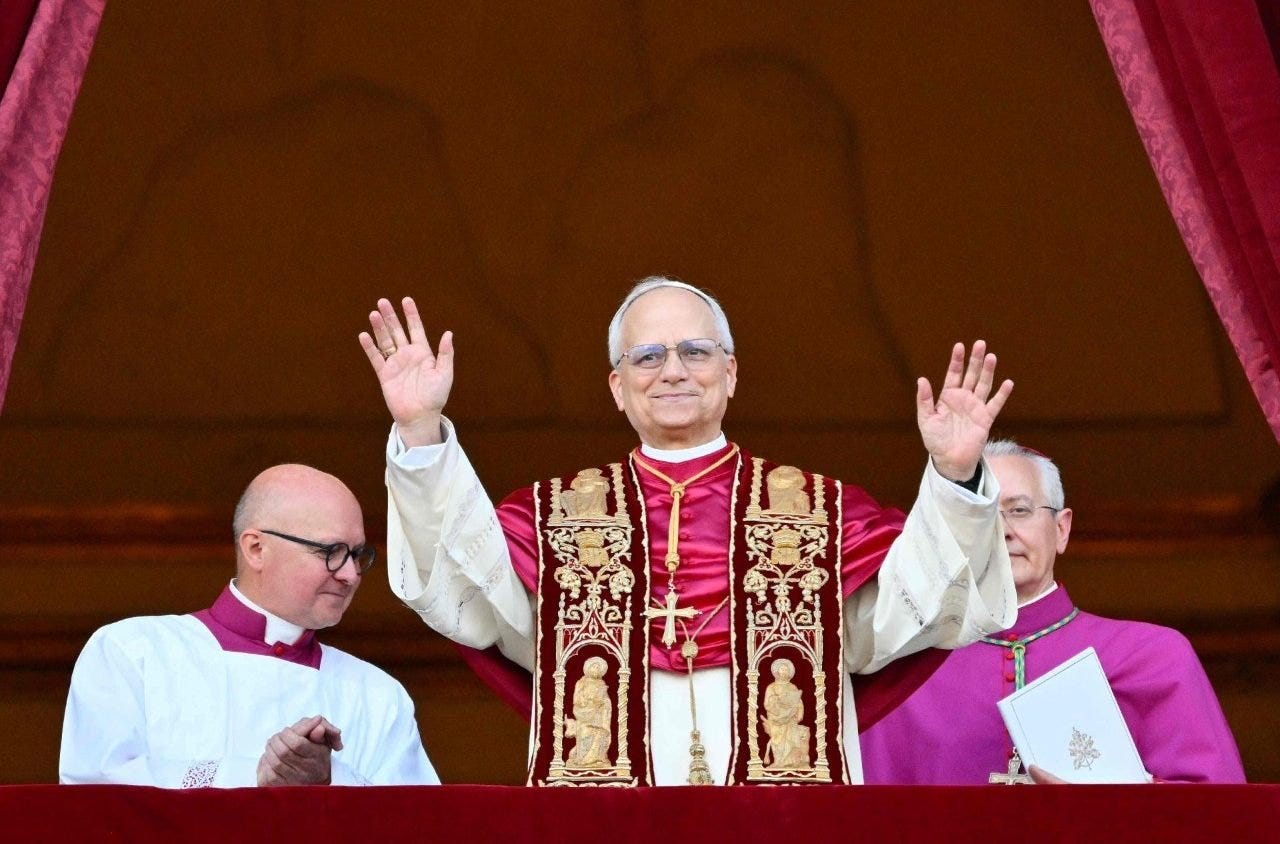Compromise is the Key to Progress
A story, quote, and lesson from the creation of the conclave
Habemus papam.
Yesterday, the world watched as Pope Leo XIV was elected the new leader of the Catholic Church, succeeding Pope Francis, who guided the Church through more than a decade marked by humility, reform, and global outreach.
As the white smoke rose over the Sistine Chapel, it marked not just a new chapter for the Church, but also a reminder of the ancient traditions that shape its leadership.
While this conclave lasted only a few days, it stands in stark contrast to one of the longest papal elections in history—a nearly three-year stalemate that forced the Church to invent the conclave system in the first place.
In 1268, after the death of Pope Clement IV, the Catholic Church found itself without a leader. The responsibility fell on the College of Cardinals to elect the next pope—something they were in no rush to do.
The cardinals gathered in the Italian city of Viterbo, and then… nothing. Days turned into weeks. Weeks turned into months. Disagreements dragged on for nearly three years. With 20 cardinals split by politics, nationality, and personal ambition, no one could agree on a candidate.

The city’s people, fed up with the gridlock, took matters into their own hands. First, they locked the cardinals inside the episcopal palace, hoping a bit of pressure might speed things up. When that didn’t work, they cut the cardinals down to one meal a day—bread and water. Still nothing. Desperate, the townspeople removed part of the palace roof to expose the cardinals to the elements. Rain, wind, and sun poured in. Yet the cardinals refused to compromise.
Eventually, after 1,006 days of deadlock, the cardinals finally elected Teobaldo Visconti, who became Pope Gregory X. Shortly after his election, Gregory made sure no such delay would happen again. He introduced rules—now known as the conclave—to ensure future elections would be swift, secluded, and decisive.
“He who enters the conclave as pope, leaves it as a cardinal.”
- A famous saying during conclaves.
The stubbornness of the cardinals led to one of the most important reforms in Church history. But that same stubbornness also caused nearly three years of paralysis. Their refusal to bend, even under harsh conditions, reflected their belief that the right decision mattered more than a quick one.
And yet, in everyday life, we’re rarely faced with stakes that high. Most decisions we face aren’t eternal verdicts. They don’t require us to endure years of discomfort just to get them “perfect.” The truth is, compromise isn’t a weakness—it’s a tool.
The story of the conclave reminds us that conviction has its place—but so does adaptability. In relationships, projects, or even creative pursuits, waiting endlessly for the perfect solution can stall momentum. Sometimes, bread and water won’t change your mind—but maybe they should.
Stubbornness can preserve integrity. Compromise can build progress. Knowing when to choose which is wisdom.
So now I ask you:
Where in your life are you holding out for perfection, when progress might just need a little compromise?



What are great story. And this reminded me that I have seen many times when the profile and attitude of some people give more important to perfection over what is practical and effective. And this is a very hard choice and it requires sometimes common sense on what is needed with a minimum acceptance of perfection or when something requires perfection at its full. And in my opinion it is more common to be exposed to situations where good enough perfection is needed.
👏🏻👏🏻👏🏻👏🏻